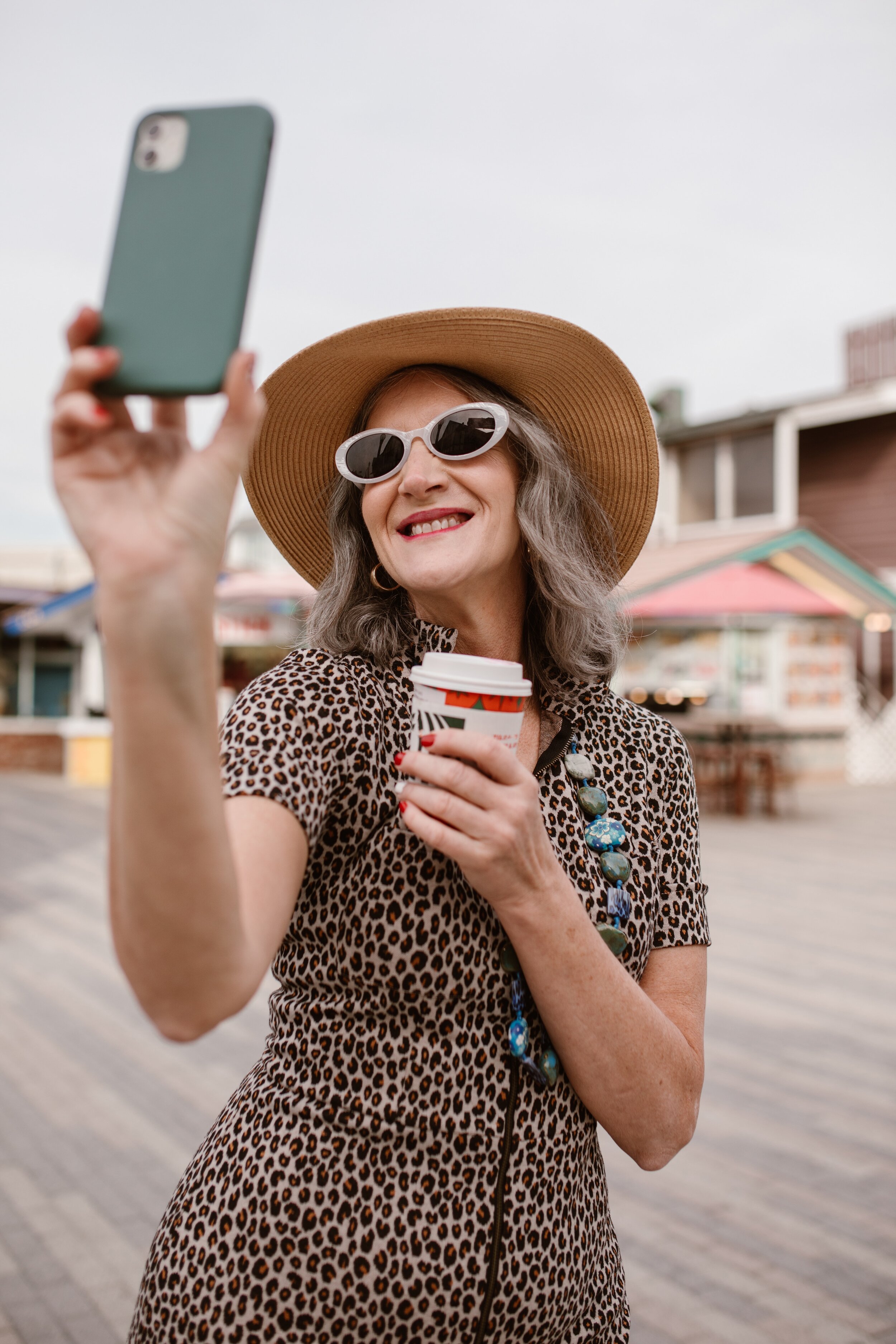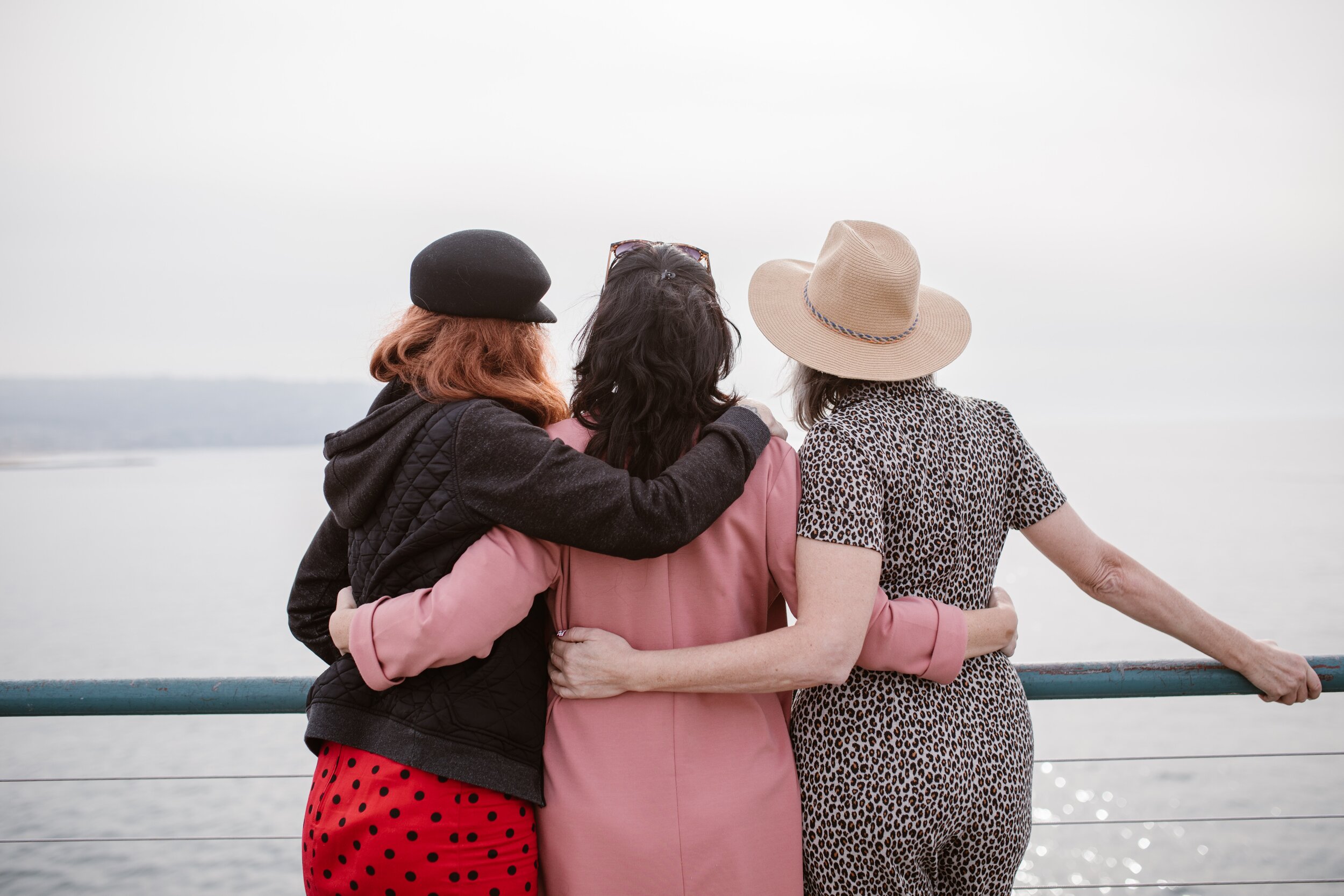The Menopause Mission
5 minute read
Several months ago I asked a healthcare professional if she thought I might be menopausal, as I was suffering from anxiety, low mood and fatigue. Her reply was: “You’re too young (I’m 46). Don’t write yourself off just yet.” I was surprised at, and disappointed by, her response. I didn’t think being menopausal equated to sitting on the scrap heap of life. However, having listened to Liveline over the past couple of weeks and watched Davina McCall’s Channel 4 documentary, Sex, Myths and the Menopause on Wednesday evening, this is exactly how the majority of women who have been going through what we euphemistically refer to as ‘the change’ feel.
I don’t know whether it’s been a good or a bad couple of weeks for women. Certainly, a conversation around menopause has been started that I’m convinced can’t and won’t be quieted. This article is only the beginning of our discussion on Heyday about what women can expect from menopause, and where they can get help to more effectively manage symptoms and side effects. Founder Ellie Balfe wants to create a central hub right here for information, support and community around this life-changing transition, because finding essential advice about, and services for, our midlife wellbeing shouldn’t feel like a game of Pin the Tail on the Donkey. As Joe Duffy said: “The menopausal taboo is getting a good kicking”, and we plan to continue the assault here at Heyday.
The tsunami of harrowing personal stories that flooded the RTE Radio phone lines over the past two weeks has left many of us feeling dejected and disheartened as well as frustrated and aggrieved. It’s as if women are seen as washed-up and not worth caring fully about once our childbearing years are over. The common narrative which emerged from women in their 30s right through to their 70s was one of misdiagnosis, neglect and abject suffering. Many endured life-changing consequences, such as relationship breakdown and job loss, as a result of a mismanaged menopause caused by a lack of training and expertise among healthcare professionals, despite the fact that the condition currently affects as many as 600,000 women in Ireland.
What I found especially poignant, though, was how often menopausal women were mistakenly prescribed antidepressants. We all know that for centuries, madness has been presented metaphorically and symbolically as a feminine illness, and clinicians have a long history of writing women off as insane, depressed or hysterical for very little else than behaviour which men either didn’t understand or didn’t approve of. For hundreds of years, if a woman failed in her role as a dutiful wife, she was cast as some kind of feral witch.
I have been taking antidepressants for the past few years, so I am in no way against medicating where appropriate. For me, at this point in my life, they’re an essential ingredient in the cocktail of my mental healthcare and general wellbeing. But in McCall’s documentary, she explained how two-thirds of 300,000 women surveyed in the UK were offered antidepressants to treat menopausal symptoms. If anything has the potential to drive an individual mad, it’s being prescribed the incorrect antidepressant or one for no good reason. They can have debilitating side effects, and the “washing out” period between finishing one type of pill and taking another can be horrendous. On one occasion, I suffered shakes and panic attacks.
I’ve no doubt GPs around the country will now be inundated by women armed with not just new information but with a renewed purpose to find solutions that fit their unique menopausal needs, because among the sadness and pain exposed on Liveline in recent weeks were stories of hope, offered by, among others, American-born, Wicklow-based Dr Deirdre Lundy, an expert in sexual and reproductive health. “There are so many women not being helped who can be helped,” she explained compassionately. She also cleared up several pieces of misinformation around menopause and offered a few basic truths: HRT will not give you cancer, nor will it simply postpone menopausal symptoms, and periods do not end before menopause begins. Information is power, and we need to arm ourselves not just by seeking out experts in this field, but by sharing our stories too.
And there are menopausal experts here in Ireland. Dr Caoimhe Hartley founded the south county Dublin-based Menopause Health earlier this year, a centre of excellence for menopause care. Patients can visit the practice or avail of virtual appointments, meaning regardless of whether you live in the wilds of Donegal or along Dingle high street, you can benefit from the specialised care you need through perimenopause and beyond. “I’m just so delighted to see menopause become more mainstream. I did my specialist menopause training five years ago and since then, I have always felt I had to defend dedicating myself to this area. It’s wonderful to see the interest in this grow,” Caoimhe explains. She adds,
“There is so much life and love and living after menopause and we need to enable women to enjoy every minute of it.”
This is the message we need to embrace now. On Heyday, we frequently speak about how midlife change can be an incredibly positive thing. With the correct care, surely menopause can too? As Belinda (played by Kristin Scott Thomas) says in Fleabag: “It’s the most wonderful fucking thing in the world because…[after it] you’re free.”
The care which menopausal women need is multifaceted, however. It’s medicinal, it’s holistic, it’s physical and it’s emotional, and over the course of the coming months, we’ll be speaking with a variety of experts in several different fields (not just medical) about how women in midlife can prepare for and deal with perimenopause and menopause.
In last Wednesday’s documentary, McCall advocated strongly for a diet and lifestyle approach to our midlife health too, and I think the older we become the more vital nutrition and exercise are to our mental and physical wellbeing.
Individuals are also working hard to encourage a greater understanding of menopause in our corporations and institutions, something which is essential if women are to experience a less traumatic, let alone positive, midlife journey. Catherine O’Keeffe, aka Wellness Warrior, provides corporate talks that help to empower employers and leaders to understand how menopause affects women at work, and how they can incorporate awareness and accommodation of the condition into their culture. “The work of change has begun,” she tells me. “I’m in a different company every week, from law firms, pharmaceuticals and retail, educating them about menopause.” She continues: “It’s fantastic that this is being discussed on national radio, but we need to be mindful from here on that all women know their choices and are armed with the correct information and healthcare options.”
The late writer and artist Henry Miller once said: “Whenever a taboo is broken, something good happens, something vitalizing.” The menopause taboo in Ireland has officially been smashed, and finally, there is healing on the horizon.
Marie Kelly, May 2021
what do you think, dear reader? tell us in the comments below…
join the conversation
share and comment below, we’d love to hear your thoughts…












